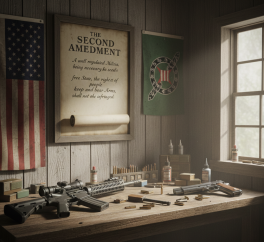

- Ref # CAC00061
- March 03, 2022
Forfeiting a Miranda Issue by Not Objecting & The Wearing of Facemasks and the Right to Confrontation.
- Miranda; Forfeiture of the Issue
- Wearing of Facemasks by Witnesses and the Sixth Amendment Right to Confrontation
Defense counsel’s failure to object to the admissibility of a non-Mirandized statement forfeits the issue on appeal. The wearing of facemasks by witnesses during trial is not a Sixth Amendment right to confrontation violation when necessitated by an on-going pandemic.
On January 22, 2020, defendant Carlos Hector Alvarez—not the most clever burglar in history—was observed via Elen and Stephan Arabian’s home security cameras climbing over a fence into the victims’ backyard. The Arabians continued to watch defendant as he tried to open the door to a converted (furnished) attached garage which Stephan used as his “cigar room.” Los Angeles Sheriff’s deputies Luis Capilla and Vincent Soto, responding to the Arabian’s 911 call, were led through the house by the Arabians into the garage. As they unlocked and opened the door from the garage to the outside, the door suddenly “flung open” and an undoubtedly surprised defendant stepped ....







